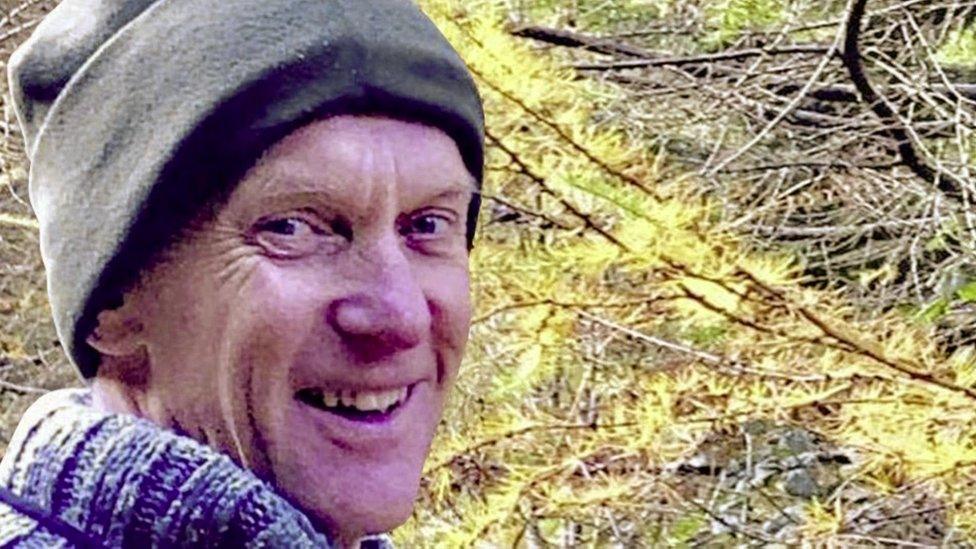Dr Michael Watt: Neurologist 'unable to understand allegations'
- Published

Dr Michael Watt's work, and its oversight, is the subject of three ongoing inquiries
The former doctor at the centre of Northern Ireland's biggest patient recall did not have "the ability to engage with a fitness to practise hearing".
That was the conclusion of the Medical Practitioners Tribunal Service.
That meant it would not be possible for such a hearing to take place in a way that would be "fair to the doctor".
Last month, Michael Watt was granted voluntary removal from the medical register in a private hearing.
He had worked at Belfast's Royal Victoria Hospital as a neurologist.
His work, and its oversight, is the subject of three ongoing inquiries.
The decision by the Medical Practitioners Tribunal Service (MPTS) decision to allow Mr Watt to remove himself voluntarily from the register has been criticised by patients and the regulatory body the General Medical Council, who argued that the hearing should have been held in public.
It means a full public tribunal into the allegations against him will now not be heard.
The Tribunal said it also considered sanctions guidance as to whether any exceptional circumstances applied to the case including where "the doctor does not have capacity to understand the allegations or to see/act on legal advice".
The MPTS has published a redacted record of the reasoning behind its decision to allow Mr Watt's application for voluntary erasure to be granted in private.
It said it was of the view that the public interest in this case was "finely balanced".
It also said that the "inability of Michael Watt to engage with a fitness to practice hearing meant that it wasn't possible for such a hearing to take place in a way that would be fair to the doctor".
The tribunal said that it also considered medical evidence that there was a high risk of Mr Watt taking his own life.
Wrong diagnosis
In May 2018, the Belfast Trust recalled 2,500 patients for review after concerns were raised about the clinical work carried out by Dr Watt at the Royal Victoria Hospital in Belfast.
This was followed by a further 1,044 patients who were recalled in November 2018.
A report has found almost 20% of patients seen by Dr Watt were given a wrong diagnosis.
An independent inquiry has been hearing evidence since September 2018 and has concluded oral evidence.
At the end of September, it emerged that interactions with a patient by the former neurologist had also raised serious concerns, according to a medical ethics expert.
London-based barrister Daniel Sokol reviewed evidence obtained by BBC Northern Ireland's Spotlight programme, including text messages between Dr Watt and the female patient that were sent between 2017 and 2020.
- Published27 October 2021

- Published6 October 2021

- Published29 September 2021
